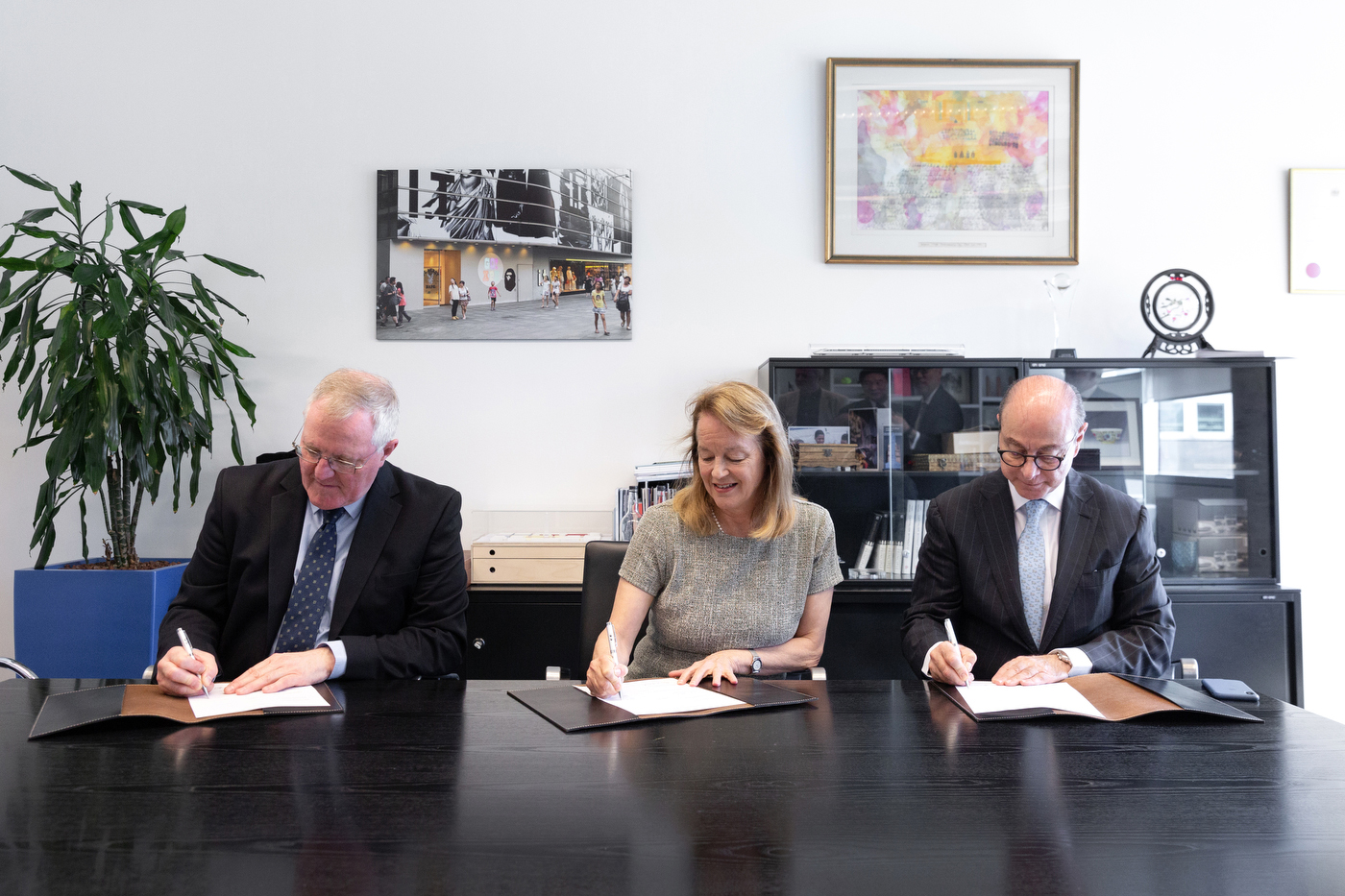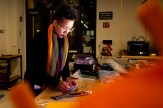Northeastern University joins with universities from US, UK, and Japan to tackle international cybersecurity challenges

Northeastern has joined with five universities from the United States, the United Kingdom, and Japan to establish a new consortium to tackle the growing international challenges facing cybersecurity experts in our increasingly connected world.
The International Cybersecurity Center of Excellence will serve as a hub for international cybersecurity research, advocacy, and education. Its members will help governments to develop global cybersecurity standards, conduct research to stay ahead of evolving threats, and train students to handle cybersecurity threats in the future.
“Cybersecurity is a fundamental global challenge that knows no boundaries and can only be solved by international partnerships,” said Northeastern President Joseph E. Aoun, who signed the charter to establish the International Cybersecurity Center of Excellence on June 28 in London. “We look forward to taking on this challenge with a global network of research institutions.”
The schools forming the core of the center with Northeastern are Keio University and Kyushu University in Japan; Imperial College London and Royal Holloway, University of London, in the United Kingdom; and the University of Maryland, Baltimore County. Other universities around the world have already expressed interest in joining the center as well. As more countries get involved, opportunities will arise to identify and close potential cybersecurity gaps worldwide.
“The challenges this first-of-its-kind partnership aims to solve span a complex set of cybersecurity issues,” said David Luzzi, the senior vice provost for research at Northeastern. “How do we have effective global standards that take into account, are sensitive to, and incorporate the discontinuities in policy that occur at national boundaries?”
Several large corporations have already provided funding for the new center, including CISCO, Adobe, Hitachi, NEC, Fujitsu, and Northrop Grumman.
“The supply chain of the world is increasingly global,” said Luzzi, who is also the vice president of Northeastern’s Innovation Campus in Burlington, Massachusetts. “One of the biggest challenges in cybersecurity from big, multinational corporations’ perspectives, is that the companies in their supply chain, which are typically smaller companies with less resources, can be weak links.”
But the benefits of the new center won’t be limited to industry, Luzzi said. Members of the consortium have already discussed how to build better security for large, international events such as the 2020 Olympics being held in Tokyo next summer. With so much global attention focused on one location, hackers will have additional incentives and opportunities to disrupt city operations like public transit, competitions, and new technology to help people access the games at home, he said.

“As new functionality is added to the Olympic experience, this can also create new vulnerabilities,” said Luzzi.
The center is also dedicated to training the next generation of cybersecurity professionals to understand the international challenges they will face. The universities are considering creating an international security competition, in which teams comprised of groups of students around the world would hand off their work from country to country as the day progressed.
“Students would have to learn to cooperate, have to learn how to collaborate across cultural differences, use the different strengths of the teams in different areas,” Luzzi said. “It could be a great intellectual and educational exercise that prepares them for this multinational future, which is going to be their professional life.”
For media inquiries, please contact Mike Woeste at m.woeste@northeastern.edu or 617-373-5718.





